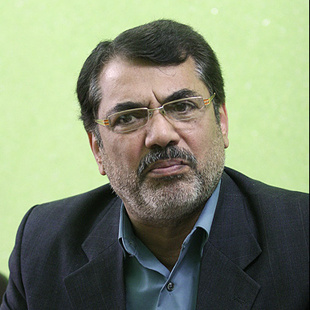Egyptians: No Israel Needed Anymore!

HT: The issue of attacking the embassy is firstly connected with the overall situation of the country. The former Egyptian system had relations with Israel under the Camp David Accords, while the people hold an opposing position regarding Israel. After Mubarak’s fall, the people found the opportunity to express their ideas. The second reason is the Israeli attack on the Egyptian army, leaving 5 dead at the borders of the Sinai Peninsula-- that was not tolerable for Egyptians and they did not understand why Israel committed such a crime with no apology while it was requested by the Egyptian government. In the end Israel expressed regret but did not apologize, and that filled the Egyptian public with rage.
IRD: The Egyptian ministry of internal affairs announced that there were some external factors in the case of the attack on the Israeli embassy. Who attacked the embassy, and is that allegation true?
HT: I think the Egyptian government proposed an unrealistic scenario because the population of protesters was so large that it affected Tahrir Square. It shows that among the Egyptian people, there is the context of hostility against Israel. It may be interesting to note that almost unexceptionally all Egyptian candidates for president joined the protestors against the Israeli embassy and delivered speeches. That raises the position of those people and these facts reveal that there are some internal incentives for such an act without some external instigation being needed.
IRD: In your opinion, how does the issue affect Israel-Egypt relations, and what will be the consequences?
HT: By considering the recent reforms in Egypt, there is an urgent need to reconsider Egyptian relations with Israel. Currently in Egypt some people have asked for a cancellation of the Camp David Accords and others for its modification. That is a request that cannot be ignored, since it may be manifested in the form of attacks, protests, etc. The explosion of the oil pipeline from Egypt to Israel four times shows that Egyptian society does not tend to want to have relations with Israel. Attacks on the embassy, demonstrations against the embassy, and such actions show that there is a new political situation in Egypt in which people are in pursuit of new desires and the government must not act against them.
IRD: Can this harm Egyptian relations with the West, as the US has condemned the action?
HT: Yes, the tendency harms Egypt-US relations, because US annual financial aid to Egypt amounts to almost 2 billion dollars and is granted to the country on the condition that it supports Israel’s security. Now US-Egypt relations are under the influence of Egypt-Israel relations, and there is a great possibility that the overall situation would be affected.
IRD: Is there any relationship between the attack on the Zionist Regime’s embassy and the protests against the Saudi embassy to Egypt?
HT: No, that is another issue. The Egyptian position against Israel is ideological and national, while its position against Saudi Arabia is related to its involvement in Egyptian internal affairs and the Saudi support of Salafi groups ignoring many of the principles of the Islamic Egyptian Society; The Salafis attacks on the tombs of Imams and their sons were confronted with extensive protests in Egyptian society. That indicates there is no official position against Saudi Arabia.

